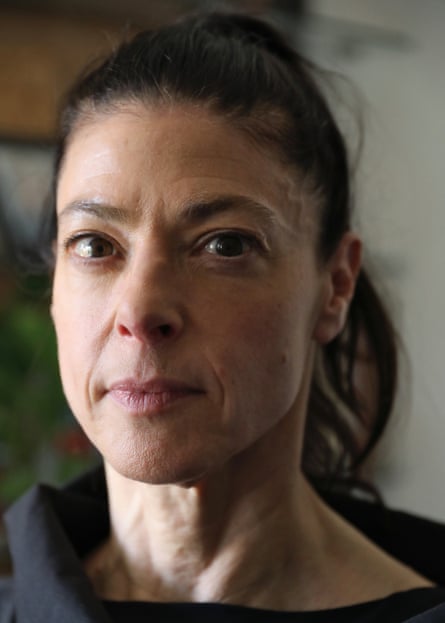
This article is more than
2 year old
| Peter Beaumont in Jerusalem For years, the newspaper Israel Hayom has been known as the “Bibiton”. A Hebrew portmanteau, it means “the paper of Bibi”, the nickname for Israel’s prime minister Benjamin Netanyahu. It was founded by the late billionaire casino magnate Sheldon Adelson as the mouthpiece for Netanyahu. Last week, the head of news at the paper, Uri Dagon, signalled a breaking of the ranks, calling on the prime minister to “lead us to victory and then go”, taking aim at the “nonstop political bickering while the war is raging”. In Israel’s fractured and fractious politics, it signalled the cohering of a rare agreement across party lines: the political era of Netanyahu was staggering to its bitter end. He is blamed widely for the security failures that allowed thousands of Hamas terrorists to pour across the border from Gaza and commit an atrocity unrivalled in the state of Israel’s history. Now Israelis are consumed with the notion of the “days after”. If the first day after describes what happens in Gaza should Hamas be toppled, the second looks to be an anticipated reset of the country’s politics, post-Netanyahu, who few except his most ardent loyalists can see surviving. 
Photograph: François Bibal/Gamma-Rapho/Getty
at reset will look like. Two words that have been used, however, are “normal” and “sane” – meaning that the far-right religious and nationalist settler parties, with whom Netanyahu was in coalition, should be stripped of their influence. A reset is not only possible, it is a necessity. We need to replace the leadership otherwise we cannot rebuild anythingMerav Michaeli, Labour party leader

transport minister who became the Labour party leader in 2022. Photograph: Quique Kierszenbaum/the Observer She described a theme, common in conversations with Israelis today: “I have never felt so insecure.” “We need to replace the leadership otherwise we cannot rebuild anything,” she said. The question is: with what? In recent years, Israel’s political and demographic trajectory has drifted right. In a country where a significant number identify with liberal values on issues from LGBTQ+ rights to feminism and equality, the notion of being “left” has come, in the hands of Netanyahu and his Likud party, to be a term of abuse associated with a failed peace process with the Palestinians that Netanyahu was instrumental in undermining. At the last elections, in 2022, the leftwing Meretz party failed to cross the electoral threshold, meaning it secured no seats in the Knesset, while Labour’s share sank to just four. As the left and centre left have crumbled, Israel’s opposition parties have swung dramatically to the right, competing on overcrowded ground defined by Likud. Likud, which holds 32 of the 120 seats in the Knesset, remains the most formidably organised of Israel’s parties. But Michaeli believes it is no longer a party that can win 30-plus seats, the number that has allowed it to lead numerous coalitions over the past 15 years. The tensions Michaeli can see within Likud lead her to hope that it might split, echoing the experience of Israel’s left. The public will seek sane, responsible figures, from the political centre and right Yossi Verter, Haaretz columnist For Haaretz columnist Yossi Verter, what marks the difference between the reset that followed the Yom Kippur war and today is not just a media and social media able to act more quickly as a lightning rod for the failures of 7 October but also the existence of a widespread anti-Netanyahu opposition movement which was already on the streets. “There was corruption and decay back then too,” he wrote last week, referring to the 1970s and echoing Michaeli’s critique. “It doesn’t come close to what has festered here in Netanyahu’s recent governments, particularly the current one. Deplorable high-ranking appointments, the inclusion of proven psychopathic criminals in centres of decision-making, the promotion of extremist, racist, Jewish terror-supporting settlers to the most critical of positions, the creation of a media poison machine engaged 24/7 in slamming anything good and sane in Israel, and glorifying everything evil and rotten. “The political sphere will change dramatically. Poll results reported over the weekend foreshadow what might happen. The public will seek sane, responsible figures, from the political centre and right.” It is an argument that appears to be borne out by recent polling. A survey undertaken for the Hebrew daily Maariv less than a week after the Hamas massacre showed public support for Netanyahu and his allies imploding. Voters are shifting to Benny Gantz’s centre-right National Unity party in the wake of his decision to join the government and form a wartime cabinet. Likud, as noted by Michaeli, would drop to just 19 seats. |